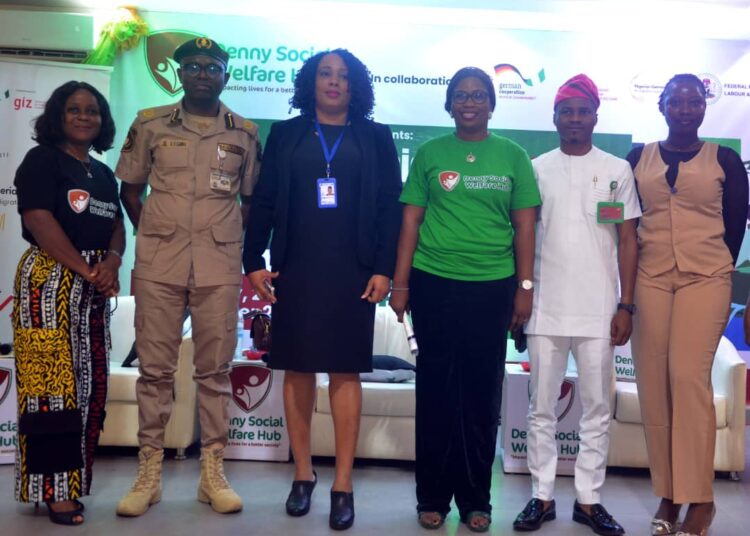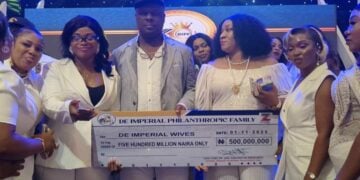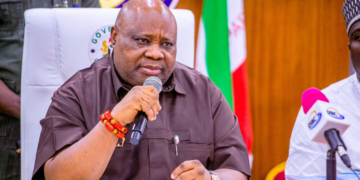To curb the risk associated with illegal migration, human trafficking and exploitative agents, stakeholders drawn from GIZ, Goethe Institute, Denny Social Welfare hub and Nigerian-German Centre for Migration and Development have sought the need to join collaborative efforts to explore legal migrations pathways for Nigerian-German immigrants.
This, they said, will need to enhance job creation, vocational skill learning and work life balance.
The stakeholders while addressing issues of illegal migrations in Lagos with the theme: Information Session on Safe Migration Work and Study opportunities in Germany agreed that, collaborative efforts and partnerships with Nigeria-German centre for migration will spur the needed economic growth for sustainability and job creation while exploring safe, legal and informed migration pathways for immigrants.
They also expressed readiness to curb irregular migration, adding that, DSWHUB had been actively engaging in community outreach programmes, educational campaigns, and collaboration with both local and international organisations to stem the tide.
Speaking at the consultative session, executive director of DSWHUB, Abosede Otukpe said, “we believe that by offering Nigerians access to credible information about legal migration processes, we can significantly reduce the risks associated with irregular migration.”
Otukpe explained that, the issue of irregular migration has reached critical levels in Nigeria ,adding that, “Our nation has seen an increasing number of its citizens taking perilous journeys, driven by misinformation, false promises, and a lack of access to accurate information on legal migration pathways.”
She noted that, individuals fall prey to human traffickers, exploitative agents, or dangerous circumstances, resulting in tragic consequences.
She said, many Nigerians seek better economic opportunities, educational prospects, or personal growth abroad, but without proper guidance, they inadvertently put themselves at risk without proper guidance while, stressing that, this issue doesn’t just affect individuals; it impacts entire families and communities, leaving a lasting negative effect on society as a whole.
Continuing, she said, we have witnessed firsthand tragic consequences of irregular migration, noting that, “We are dedicated to addressing this through education, advocacy, and support for safe migration options.
“We recognise that we cannot tackle this issue alone. This is why we have partnered with key stakeholders today to share expert insights and provide the necessary tools for informed decision-making.”
Also speaking, programme component manager, Lagos, GIZ/ZME Nigeria, Ayomikun Olugbode said: ”In line with GIZ’s mission to promote safe, regular, and responsible migration, the essence of this program is to empower people with the information they need to make well-informed decisions about migration.
“By partnering with DSWHUB, we aim to provide authentic, reliable guidance directly from experts, ensuring attendees understand the pathways for legal migration to Germany. Our goal is to equip people with knowledge that not only informs but also safeguards them on their journey.”
On his part, Project coordinator for the AMIF Project at Goethe Institute Nigeria, Lasisi Eniola highlighted the institute’s commitment to empowering people through language education, which is essential for those aiming to live and work in Germany. ‘At Institute, we empower individuals through language learning, an essential tool for those planning to live and work in Germany,’ Eniola explained.
To him, “Our involvement in the migration space through the AMIF project reflects our commitment to providing language skills that ease cultural transitions and support legal migration pathways.”
He emphasised that the partnership with DSWHUB will help disseminate accurate information about the legal requirements for migrating to Germany. “Partnering with DSWHUB is vital, as it enables us to share critical information about the requirements for living in Germany. At the Institute, we offer training across multiple language proficiency levels to help individuals overcome language barriers and navigate their migration journey successfully,” Eniola added.





